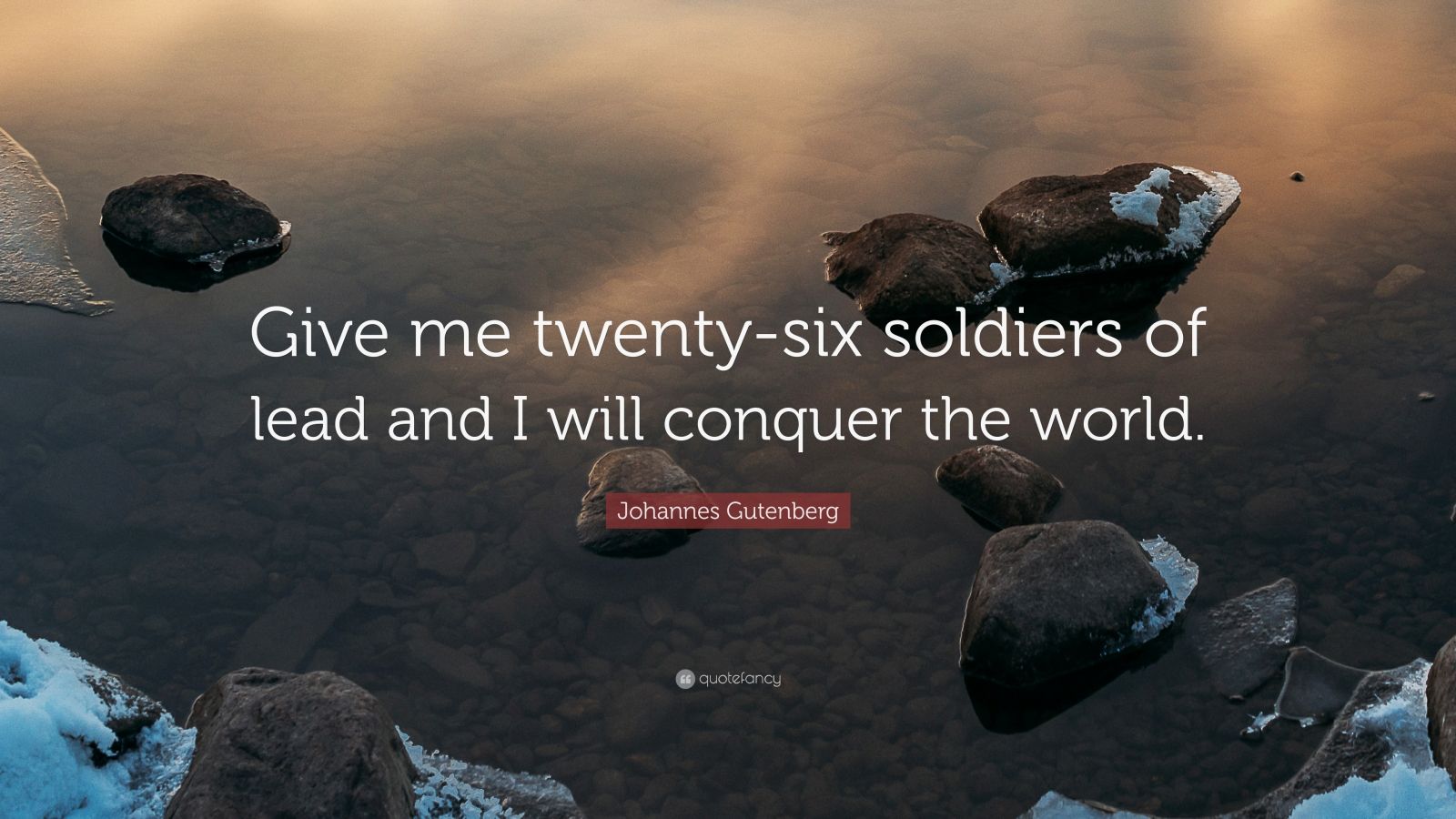

With the arrival of the printing press, not only could more people afford books, but the forms in which literature was written and shared were able to change.

Similarly, news and the few books that communities could afford were often read aloud to groups of people, a consequence of the price of printed materials and limited literacy. According to the University of North Georgia, in the distant past, narratives were primarily shared through the form of the epic poem using the oral tradition: Often, these poems weren't even written down but were memorized, calling for the use of rhythm, rhyme, and poetic motif to help the speaker to recall the flow of the story. In fact, the novel is a rather modern invention, the existence of which is entirely dependent on Johannes Gutenberg's pioneering use of moveable type. His antagonism against the practice was central to the formation of Protestantism, but the legendary event in Wittenberg was likely not as instrumental in spreading his doctrine as Luther's use of Gutenberg's method of printing, which allowed for what the Library of Congress describes as "history's first media event." The dissemination of his ideas was rapid, with tons of his theses and other Protestant pamphlets spread around Europe within just a few years, and aided Luther's sharing of his German translation of the Bible - at the time considered blasphemous - changing the course of Western Christianity for good. Luther felt that such a system suggested the rich could buy their way into Heaven, which, honestly, doesn't sound very, well, Christian, does it? Many of us are familiar with the story of Martin Luther and how, on October 31, 1517, he nailed to the door of the church in the German town of Wittenberg his challenge to Catholicism, "95 Theses on the Power and Efficacy of Indulgences." Indulgences were a common occurrence in the Catholic Church: They allowed rich followers to atone for their immoral behavior and those of family members already passed over, whom they feared might be stuck in Purgatory. In a typically thoughtful letter sent to the Gutenberg Museum in Mainz in 1900, Mark Twain claimed that, "All the world acknowledges that the invention of Gutenberg is the greatest event that secular history has recorded," but also that "What the world is to-day, good and bad, it owes to Gutenberg." Well into the age of electronic information, we may find that this is still the case in the 21st century - for both the good and the bad. Like the internet at the turn of the millennium, the transformative power of Gutenberg's invention was so utterly all-encompassing that to characterize it idealistically as "progress" or "a benefit to mankind" is to take a naive view of its influence.
THE DAYS OF MY LIFE GUTENBERG FULL
Moveable type - a process by which cast metal letters are arranged as separate pieces within a frame, which (unlike a full woodcut) meant that arrangements could be made quickly and mistakes in printing easily rectified - rapidly increased the speed at which information could be transmitted, with great repercussions for everything from news to politics, from art to science, and everything in between. However, the importance of his contribution to Western civilization has never been in doubt.


 0 kommentar(er)
0 kommentar(er)
